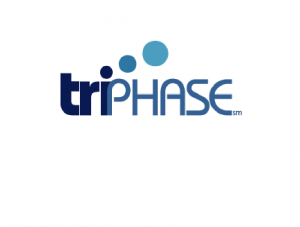Results for results in docetaxel-resistant prostate cancer models presented at the American Association for Cancer Research (AACR) Conference
TORONTO and SAN DIEGO (April 18, 2016) — Triphase Accelerator Corporation, a private drug development company dedicated to advancing novel compounds through Phase 2 proof-of-concept, and the Ontario Institute for Cancer Research (OICR), today announced positive results from a preclinical study of their CBZed-Nano™ (cabazitaxel cellulose nanoparticle) product in docetaxel-resistant prostate cancer mouse models. Preliminary results also showed that the nanoparticles accumulate in intracranial brain tumors in a mouse model of malignant glioma. These results were presented in a poster session during the American Association for Cancer Research (AACR) annual meeting in New Orleans, LA on April 18.
“We are encouraged by these results, because they indicate that in addition to the potential for better efficacy with CBZed-Nano™ than free cabazitaxel, they also indicate that our nanoparticle preparation may be better tolerated and can deliver drugs in the brain,” said Mohit Trikha, Ph.D., chief scientific officer, executive vice president and head of R&D at Triphase Accelerator. “With established manufacturing methodology and clear indications of improved outcomes, we anticipate continued study of CBZed-Nano™ in malignant glioma and other indications.”
In the orthotopic efficacy study, investigators injected mice femurs with a docetaxel-resistant prostate cancer strain. These mice were then injected with CBZed-Nano™ (55 mg/kg), conventional cabazitaxel (2 mg/kg) or vehicle in a conventional dosing regimen over nine days. CBZed-Nano™ mice showed more than 120 days median survival, compared to the cabazitaxel group, which showed 47 days median survival. Efficacy was demonstrated equally with two preparations of CBZed-Nano™ using different manufacturing methodologies.
About Triphase Accelerator
Triphase Accelerator is a private drug development company with a primary focus on oncology and with operations in Toronto and San Diego. Triphase Accelerator is dedicated to advancing novel compounds through Phase 2 proof-of-concept clinical studies using a unique, science-based, high-quality model that is faster and more cost-effective than traditional pharmaceutical and biotech industry drug development approaches. Triphase Accelerator was spun out of the Ontario Institute for Cancer Research (OICR), with support from the Fight Against Cancer Innovation Trust (FACIT), MaRS Innovation and MaRS Discovery District. It has a strategic relationship with Celgene for marizomib.

